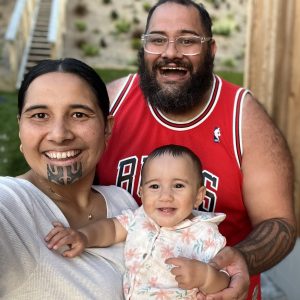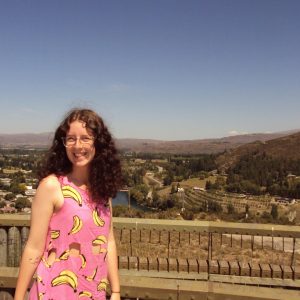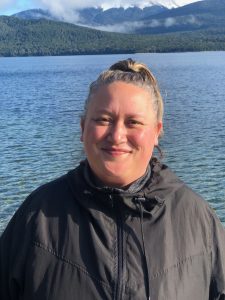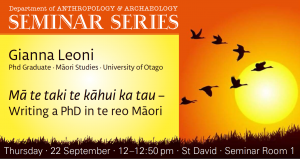August graduands
This Saturday (20 August) is graduation day. It is always wonderful when Te Tumu students graduate, but especially postgraduate students. Completing an Honours, Masters, or Doctoral degree requires a huge amount of determination, because it encompasses a significant piece of self-directed research. A dissertation or thesis is not easy task. He mihi tēnei hei whakahōnore i ngā tāngata kua whakaoti i taua haerenga.
Iwi: Te Whakatōhea, Te Whānau-a-Apanui
Village: Leimatua (Vava’u) – Tonga
I have just recently finished as the Chief Advisor of the New Zealand Curriculum Refresh and am about to start as a Senior Manager in EY’s Consulting Division. I am also a Senior Fellow of the Atlantic Fellows for Social Equity and the Global Atlantic Fellows space working with individuals and groups across the globe in the global equity space.
Sammy is graduating with a Master of Indigenous Studies.
Dissertation title: Unrelenting Achievement With Attitude – Iwi Based Education On The Rural East Coast of Aotearoa: A case study on Te Kura-a-Rohe o Ūawa me Kahukuranui – Tolaga Bay Area School me Kahukuranui’s localised and responsive curriculum
Sammy’s supervisors were Paerau Warbrick and Karyn Paringatai (Te Tumu).
Abstract: Unrelenting Achievement With Attitude is the school motto of Te Kura-a-Rohe o Ūawa me Kahukuranui – Tolaga Bay Area School me Kahukuranui on the rural East Coast of the North Island in Aotearoa, New Zealand. Located in the heart of Te Aitanga-a-Hauiti and sitting on Mangarara Pā, the former residence of Te Kani-a- Takirau, Hauiti me Ngāti Poroutanga are fixtures of the school’s localised curriculum. This case study looks to answer the question of ‘how can schools develop a localised curriculum and outcomes alongside iwi aspirations?’. The ontological position taken within this essay is that Māori success will look different within localised contexts, as well as that iwi aspirations can be given life within the New Zealand education system alongside the New Zealand Curriculum guidelines. Kaupapa Māori and indidenous approaches have been used to outline the ontological, epistemological, axiological, and methodological approaches taken throughout this work, as well as autoethnographic narrative and autoethnographic methodologies to give context to these approaches.
Iwi: Kāi Tahu, Kāti Māmoe and Waitaha
At the moment I am working as a tutor and a research assistant at Otago, primarily working on a research project with Anaru Eketone on Māori suicide postvention. I am in the process of enrolling to do my PhD at Victoria University of Wellington, looking at studying learning about, and care for, identities related to gender, sex, sexuality and body amongst Kāi Tahu young people. I am excited to continue weaving together knowledge around gender and Māori identities in my future research, working with my whānau, hapū and iwi.
Ahinata is graduating with a Master of Indigenous Studies.
Dissertation title: Decolonising Taera: Representations of wāhine Māori from early colonisation into contemporary pornography.
Ahinata’s supervisors were Angela Wanhalla (History) and Anaru Eketone (Social Work)
Abstract: This research answers the question of the impact colonisation has had on representations of wāhine Māori bodies, identities and sex, tracking the extent to which this continues in contemporary pornography. This research project takes a decolonial and Mana Wahine approach, answering this question by evaluating early colonial depictions and descriptions of wāhine Māori, comparing them to those in contemporary pornography. The significance of this lies in identifying themes in how colonial ideas continue to be impacted on wāhine Māori bodies in pornography, influencing sexual scripts, discourses and treatment of wāhine Māori in broader society. This is carried out through qualitative thematic image and textual analysis of a sample of 50 video thumbnails and titles collected from PornHub. This project argues that colonisation has influenced social discourses and scripts of wāhine Māori bodies, selves, and sex, seeing this colonial impact continuing in contemporary pornography. This project is ultimately a challenge to the power colonisation holds over wāhine Māori and our representation.
Iwi: Waikato/ Ngāti Maniapoto
(Louise notes “our ancestor Kewene Te Haho hangs in the main room of Te Tumu. Was always lovely to see our tūpuna hanging there.”)
Currently I am working as a Policy Analyst here at the Dunedin City Council. It wasn’t a role I had thought of doing but it has been really rewarding.
I am able to use all the knowledge and expertise gained throughout my PhD journey into this role. It has been rewarding because I can see real world applications from all the knowledge I have gained. I am also an independent researcher involved in collaborative projects with the Māori and Pasifika Education Trust. I am currently working towards publishing my thesis as a book and continuing my work with the digital archive app Tutuku I created for my PhD.
Louise is graduating with a PhD.
Thesis Title: He Kohinga Kōrero: A selected group of Māori musicians and performers’ experiences of the 1960s through the Māori Showband movement.
Louise was supervised by Karyn Paringatai, Michael Reilly (Te Tumu) and Professor Emerita Khyla Russell.
Abstract: This thesis examines the unique identity of the Māori Showband movement through the narratives and experiences of a selected group of Māori Showband musicians and entertainers of the 1960s. The Māori Showband musicians and performers are connected through the whakapapa (genealogical connections) of the showband communities.
“He Kohinga Kōrero: A Selected Group of Māori Musicians and Performers’ Experiences of
the 1960s Through the Māori Showband Movement,” is grounded in Māori Studies but
informed by previous research in Ethnomusicology. The written component of this thesis is
partnered with my nominated creative component Tutuku. Tutuku is a digital archive created alongside “He Kohinga Kōrero,” which uses the research gained as informed commentary within the digital archive.
This thesis creates a new understanding of the Māori Showband identity and success.
Scholarly research surrounding this popular musical movement is sparse. The first part of this thesis investigates the cultural and social climate for Māori before 1960 that lead to the
opportunities and emergence of this musical movement. Chapter one introduces the digital archive and discusses the barriers to accessing stories and knowledge. It also lays down the ground work of the research methods used and the importance of kaupapa Māori research methodologies.
“He Kohinga Kōrero: A Selected Group of Māori Musicians and Performers’ Experiences of
the 1960s Through the Māori Showband Movement,” is grounded in Māori Studies but
informed by previous research in Ethnomusicology. The written component of this thesis is
partnered with my nominated creative component Tutuku. Tutuku is a digital archive created alongside “He Kohinga Kōrero,” which uses the research gained as informed commentary within the digital archive.
This thesis creates a new understanding of the Māori Showband identity and success.
Scholarly research surrounding this popular musical movement is sparse. The first part of this thesis investigates the cultural and social climate for Māori before 1960 that lead to the
opportunities and emergence of this musical movement. Chapter one introduces the digital archive and discusses the barriers to accessing stories and knowledge. It also lays down the ground work of the research methods used and the importance of kaupapa Māori research methodologies.
He kauhau
Te Tumu’s newest PhD graduate will be presenting a seminar to the Department of Anthropology and Archaeology this Thursday, 12pm. Ko te kaupapa te tuhi i tāna tuhinga kairangi i roto i te reo Māori; on writing a thesis in Māori. Koia kei a koe, Gianna.





